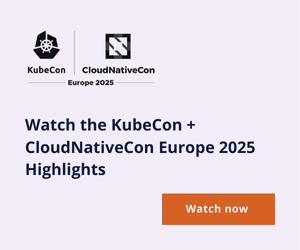The IT landscape tends to change drastically. Organizations are beginning to realize the benefits of a multi-cloud or hybrid cloud infrastructure. A multi-cloud or hybrid cloud platform helps organizations pick and choose services that best suit their workloads. Having an option to choose from various vendors helps ensure that you select the services that address your needs and are cost-effective. IT Ops teams get to be in control of what your infrastructure looks like rather than a cloud service provider (CSP). However, a multi-cloud or hybrid cloud platform comes with its own set of complexities that can become significantly detrimental to an organization. Having tools from various vendors means different security policies, a different set of integrations, and deployment complexities that can be extremely hard for IT Ops to address. With all the differences across platforms it becomes hard to manage operations, and the costs can spike leaving a dysfunctional platform that has more flaws than it has benefits.
The answer to this is to go with Cloud Agnostic and vendor neutral solutions that are easy to scale across disparate systems. These solutions help alleviate the costs of applying security policies to different services and empower organizations to access their complex infrastructure. Having Cloud Agnostic tooling helps development teams work on their tasks without the added stress of writing security policies and integration logic inside their code. And, Ops teams get to have complete control over workloads. The best part of these tools is how little time and effort it takes to implement them. For many of them, it’s as simple as plug-and-play.
CI/CD tools are a critical part of any DevOps project. These tools help expedite integration and deployment and significantly reduce the time to market. However, CI/CD tools by cloud vendors tend to be Cloud Native and push organizations to use other tools by the same vendor for additional features. Vendor lock-in is becoming a severe problem that prevents organizations from implementing multi-cloud and hybrid cloud infra. Organizations with workloads on different public clouds need different CI/CD pipelines for each cloud. Let’s look at some of these Cloud Agnostic and vendor neutral CI/CD solutions that help ease the complexities of multi or hybrid cloud.
GitLab CI/CD
GitLab is a web-based code repository with features like issue tracking, analytics, and a Wiki. GitLab CI/CD is an extension to the existing capabilities of the Gitlab solution. With GitLab CI/CD, each commit/push triggers build, test, and deployment activities that make it extremely easy for teams to meet their deadlines. GitLab CI/CD is also available as an open-source, self-managed tool that can be integrated with AWS and GCP.
GitLab performs automated code verification after each merge request to ensure only correct and secure code makes it to production. GitLab also scans container images and performs static and dynamic application security testing (SAST and DAST). This solution also helps you create a pipeline as a code using YAML.
Harness
Developed initially for applications hosted in Kubernetes, Harness has become a more holistic CI/CD tool that integrates with the three major cloud providers (AWS, Azure, and GCP). Harness provides a developer-first experience by letting teams create a single pipeline that is easy to learn and deploy. This fully managed service helps teams deploy their code in minutes. Teams can deploy AI/ML-driven workflows that manage their resources and automate deployment at any scale.
Harness also allows Ops teams to create templatized pipelines that teams across an organization can use. With Harness, teams can move microservices across clouds without any downtime. Harness also empowers organizations by performing intelligent testing, deployment verification, automated rollbacks, automated governance, and efficient cost management.
GitHub Actions
GitHub Actions is the CI/CD offering by the most widely used code repository GitHub. With GitHub actions, teams can implement automated workflows right where they store their code. Teams can use pre-built actions from the GitHub marketplace or create custom actions. GitHub actions are event-driven, which means teams can choose to run actions based on a particular event. Teams can configure automated CI/CD workflows when a user makes a pull request.
All actions are written in YAML code and can be found inside the code repository. Ops teams can perform automated testing with GitHub actions by triggering test scripts upon a push request and even notify reviewers. GitHub Actions can be used to deploy code of AWS, Azure, and GCP environments.
Codefresh
Codefresh is an end-to-end CI/CD platform that helps teams quickly build, test, integrate, and deploy their products. Codefresh is built on Kubernetes and provides incomparable scalability and speed while building pipelines. Codefresh cashes docker images, source code, and dependencies and distributes them across all the nodes in your pipeline so you can get up and running quickly with almost no downtime.
Ops Teams can configure steps provided by Codefresh to work parallelly or sequentially so your pipelines run faster and your code is deployed quicker. Codefresh provides integrations to all the major cloud vendors like AWS, GCP, and Azure while integrating with VMs and bare metal. Teams that want more out of Codefresh can write their custom steps in a language of their choice, package them in a docker image, and include said image in their pipeline. CodeFresh also provides a CI/CD debugging tool to debug your pipelines and carry out necessary actions to get them up and running.
The future is Cloud Agnostic. Organizations using multi-cloud or hybrid cloud platforms must choose tools that make their job easier and take care of the complexities of all the integrations.






